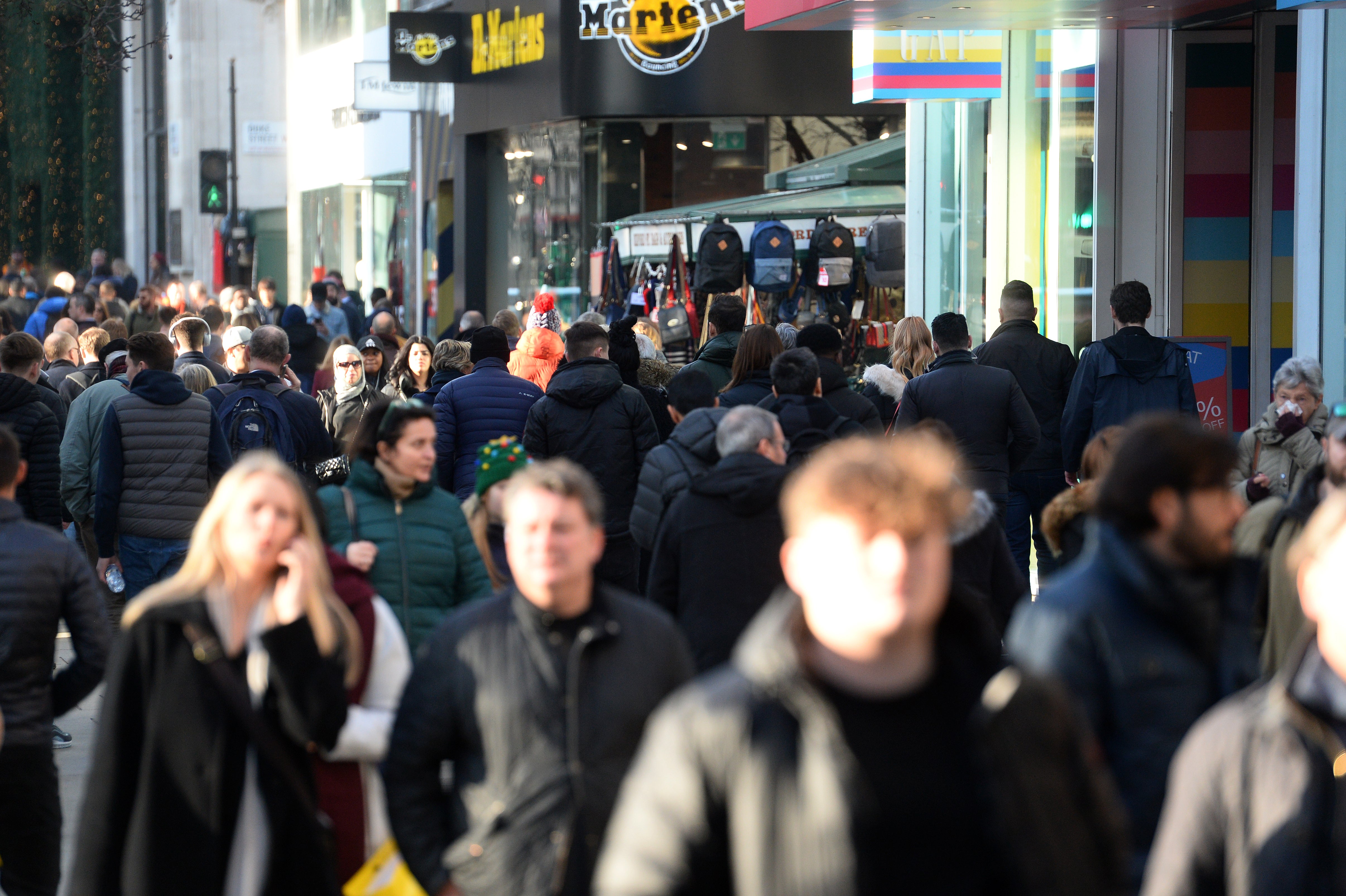Shrinking economy in April puts recession fears back in spotlight
Economists believe a technical recession may yet be avoided, but the cost-of-living crisis has worsened the growth outlook for this year and next.

Your support helps us to tell the story
From reproductive rights to climate change to Big Tech, The Independent is on the ground when the story is developing. Whether it's investigating the financials of Elon Musk's pro-Trump PAC or producing our latest documentary, 'The A Word', which shines a light on the American women fighting for reproductive rights, we know how important it is to parse out the facts from the messaging.
At such a critical moment in US history, we need reporters on the ground. Your donation allows us to keep sending journalists to speak to both sides of the story.
The Independent is trusted by Americans across the entire political spectrum. And unlike many other quality news outlets, we choose not to lock Americans out of our reporting and analysis with paywalls. We believe quality journalism should be available to everyone, paid for by those who can afford it.
Your support makes all the difference.Britain’s unexpected drop in output over April is seen putting the economy on course to shrink in the second quarter and has pushed recession fears back to the fore.
Experts are now pencilling in a fall in gross domestic product (GDP) overall between April and June of around 0.5% or more, with the lost working days over the Jubilee bank holiday also set to impact June’s data.
With the economy having now shrunk in both March and April – by 0.1% and 0.3% respectively – there are renewed worries over a sharp slowdown as the cost-of-living crisis appears to have halted the post-pandemic bounce back.
A raft of City analysts has warned that the first back-to-back monthly fall in GDP since early 2020 raises the risk of recession.
Russia’s invasion of Ukraine has seriously set back Covid recovery plans around the world, but with a backdrop of reduced trade, rising taxes and a price cap creating artificial energy peaks, the UK has particular problems
Economists believe a technical recession – as defined by two successive quarters of falling GDP – may yet be avoided, but there is no doubt that the economic outlook has worsened in recent months.
Martin Beck, chief economic adviser to the EY ITEM Club, said: “April’s fall in output, plus the distortionary effect of the extra June Jubilee bank holiday, raise the risk that the economy will experience a contraction, if small, in the current quarter.
“With the third quarter having a full quota of working days, activity should rebound, meaning the chances of a second successive quarterly decline in GDP – the traditional definition of a technical recession – look low.
“But the growth outlook is poor.”
The latest official figures come after the Organisation for Economic Co-operation and Development (OECD) recently warned the UK economy will grow more slowly than first thought in 2022, and grind to a halt next year as the Ukraine war impacts economies worldwide.
Chancellor Rishi Sunak has insisted slowing growth and soaring inflation is a global problem.
But as AJ Bell financial analyst Danni Hewson said, the UK is facing battles on a number of fronts.
“Russia’s invasion of Ukraine has seriously set back Covid recovery plans around the world, but with a backdrop of reduced trade, rising taxes and a price cap creating artificial energy peaks, the UK has particular problems,” she said.
The falls in GDP over March and April mean that the economy is now 0.4% below its January 2022 peak as the recovery has gone into reverse, though there are bright spots in April’s growth data.
It shows that GDP still stands 0.9% higher than before the pandemic struck and that, without the impact of the phasing out of the Government’s test and trace programme and lower vaccine activity, the economy would have grown by 0.1%.
ING economist James Smith said the surprise contraction in April is “not quite as bad as it looks”.
He said: “The ending of free Covid testing in March means April’s UK GDP figures look worse than they are.
“The Bank of England will be focusing more on how bad the consumer story could get in coming months, but the recent announcement of extra government support should help insure against a consumer-led recession.
“Though ultimately a lot depends on whether we get another leg higher in wholesale energy prices this autumn.”